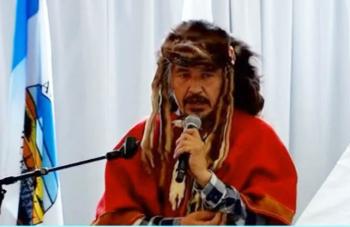Image Caption
Summary
Local Journalism Initiative Reporter
Windspeaker.com
Athabasca Tribal Council (ATC) chair Allan Adam says the five First Nations in northeastern Alberta that form ATC need a “bare minimum” of $20 million to address addictions and mental health issues.
That number is only slightly more than the millions of dollars drug dealers make annually in Athabasca Chipewyan First Nation.
“The opioid crisis has got its own revenue stream… I believe that the drug dealers make $17 to $18 million from our community alone on a yearly basis. I wish our First Nation could make that much money,” said Adam, who is also chief of Athabasca Chipewyan Nation.
He said violence has broken out in the community with gangs fighting. Community members are harbouring drug dealers in their homes. People are afraid to speak out.
“We’re all affected by it. Everyone of us,” said Adam.
Adam was joined by First Nation chiefs Vern Janvier (Chipewyan Prairie) and Neil Cheecham (Fort McMurray) along with ATC chief executive officer Karla Buffalo and Treaty 8 Grand Chief Arthur Noskey this morning at a press conference in Fort McMurray. They announced a regional state of emergency due to escalating mental health and addictions crisis. Also present was Sandy Bowman, mayor of the Regional Municipality of Wood Buffalo.
ATC also includes the Mikisew Cree First Nation and Fort McKay First Nation.
Since January, Adam said the five nations have lost more than 60 members to overdose, suicide or the results of self-harm. That number stood at more than 30 in June.
That’s a stark contrast to the two or three members that were lost during the coronavirus pandemic in 2020.
Adam said that he himself has lost a brother and two nephews in the last three months to the opioid crisis.
“These are the things that happen when there is no help available for anybody,” said Adam.
To address the support needed, ATC has struck a community-led task force, which includes band governance representatives, health directors and professionals, emergency management members, RCMP members, community groups, and businesses.
“This group of people have a significant challenge ahead. The trauma that our communities are facing were not created overnight. The answers that we need to have and the solutions that we need to have in place at a community level will not be done overnight,” said Buffalo.
Members are experiencing generational trauma, she said.
“For many years, for many generations, colonization, residential schools have taught us to not love ourselves, to not be proud. To put who we are as deep down and as far away as possible. And that’s no longer where we’re going to stay,” said Buffalo.
ATC and the nations are calling for a sustainable funding agreement that will allow ATC to focus on developing a regional community action plan to establish sustainable local and culturally safe resources for mental health and addictions care.
They are calling for the creation of detoxification, treatment and post-treatment centres with land-based healing, physical infrastructure and resourcing for operations and maintenance; and, appropriate human health resources to support treatment and post-treatment centres, community well-being teams and a crisis response team.
ATC is also asking for funding to develop a regional employment strategy for members and a regional First Nations-led policing program.
Adam said that ATC had reached out to all levels of government, as well as industry for financial support.
Indigenous Services Canada has offered $1.2 million and $100,000 over the last three months, he said.
As for the province, Adam didn’t offer any dollar figures only that a meeting had been held with the Alberta government on Sept. 6 and that the province was looking to ATC as a leader in how to address the opioid crisis across Alberta.
As for industry, Chief Janvier said he recently met with one oil company to ask for $2 million to address basic needs such as housing, food security and a First Nations police force. That same company announced that it had made $2 billion in the last quarter. Janvier didn’t say if the company had committed to helping.
But Buffalo said ATC will not be waiting for funding before they begin their work.
“If there are initiatives that this task force deems immediately necessary to implement, ATC or our member nations have committed to fund them directly. And we will, as our communities cannot wait for a slow bureaucratic response from the federal and provincial governments,” she said.
Adam said since raising the issue, ATC has received about $1.3 million from Indigenous Services Canada but “that’s not enough. That’s just tip of the iceberg.”
He pointed to the “billions and trillions” of dollars being made in the region through the oil and gas resources.
“I’m asking industry, municipality and the government of Alberta and Canada to step up with the trillions of dollars you’ve taken from our resources and our lands. You give some of that back to help our people… (and) if not, get out of here,” said Adam.
Local Journalism Initiative Reporters are supported by a financial contribution made by the Government of Canada.

